#Swift
Junkyard Find: 2001 Suzuki Swift, Colorado Bag-O-Legal-Weed Edition
I live in Colorado, where recreational cannabis has been legal since the beginning of 2014. The (allegedly) medical-only stuff had been available all over Denver, complete with sign-spinners on street corners, for years before that, and so nothing much changed when the Reefer Man was allowed to sell his wares to just about any adult. Sure, hundreds of doomed recreational dispensaries have joined the hundreds of doomed brewpubs and doomed tattoo shops fighting for the not-so-abundant dollars of the thin slice of the Denver population interested in shatter hash, yeast-sludge-filled draft beer, and/or blotchy tattoos of the Chinese characters for “poop”… and I’ve started seeing bags of weed in junkyard cars here.
Prior to legalization, no self-respecting tow-truck driver or junkyard employee would have allowed free pot to slip by, but nowadays a few grams of mystery doobage is about as appealing to those guys as a half-empty 40-dog of King Cobra found in the trunk.
Here’s a Suzuki Swift that I found in a Denver yard with such a bag that I spotted tied to the gas spring on the hatch.
Suzuki Recalls 2M Amid Reports Of Smoking Ignitions
Suzuki is recalling a record 2 million vehicles to replace ignition switches amid reports of smoke and fumes being emitted from the part.
Junkyard Find: 1990 Geo Metro LSi Convertible
GM and Ford sold quite a few of their badge-engineered micro-import gas-sippers (the Kia Pride aka Ford Festiva/Aspire and Suzuki Cultus aka Chevy Sprint/Geo Metro) in the 1980s and 1990s, and that means that I see a lot of these cars in the junkyard these days. It takes a special Metro to warrant inclusion here— so far we’ve seen this ’90 Metro El Camino, this ’92 LSi convertible, this electric-powered ’95 Metro, and this ’91 Suzuki Swift so far, plus this bonus Honda CBR1000-powered LeMons race-winning Metro— and I think a happy yellow LSi convertible is more interesting than your ordinary Geozuki.
Junkyard Find: 1992 Geo Metro LSi Convertible
As a former Metro owner— about ten years ago, I found a low-mile ’96 Metro with four-cylinder and automatic for a scrap-value price and couldn’t say no to the deal— I’ve always sort of liked Suzuki’s little no-lux gas miserwagen. It takes a special Metro for me to include it in this series, however; we’ve seen this ’90 Metro El Camino, this electric-powered ’95 Metro, and this ’91 Suzuki Swift so far, plus this bonus Honda CBR1000-powered LeMons race-winning Metro, and now I’ve found one of the very rare Metro convertibles at a California self-service wrecking yard.
Junkyard Find: 1990 Geo Metro-amino Pickup
It takes a really special Geo Metro to achieve Junkyard Find status; the last one that managed the feat was this bright green electric-powered ’95, which turned out to be a Ree-V conversion made in Colorado during the EV optimism of the late 2000s. During a trip to my old San Francisco Bay stomping grounds a few weeks ago, I spotted today’s Junkyard Find parked just a few yards away from this will-make-you-haz-a-sad 1960 Nash Metropolitan.
Just Kidding! Suzuki Decides To Play Late April Fools Joke On North American Employees
All 12 North American employees have been officially notified that their jobs are saved.
Junkyard Find: 1991 Suzuki Swift
We haven’t given up on Suzuki yet, and so I decided to photograph this Geo Metro sibling when I found it in a Denver-area self-service yard.
And the Winner Is…
While today’s Arse Sweat-a-Palooza winner on laps is indeed the same Honda-motorcycle-engined Geo Metro that won the 2008 Arse Freeze-a-Palooza, it’s really a much different car now. In ’08, the Geo Player Special (then known as the Metro Gnome) had the CBR900RR engine driving the front wheels, via an ingenious chain drive that used a toilet plunger as a grease seal. Since that time, the engine— now a CBR1000— has been moved back and now drives the rear wheels.
Suzuki To Sell Plug-In Hybrid Swift
Suzuki will finally relent and will offer a plug-in hybrid version of its bestselling Swift hatchback. A lithium-ion battery will power the car for the first 30km (18.6 miles), then a gasoline engine will produce the juice, says The Nikkei [sub].





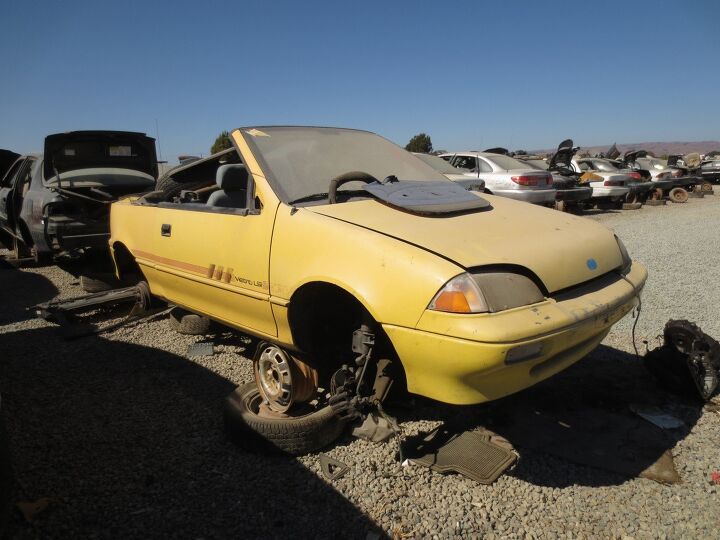
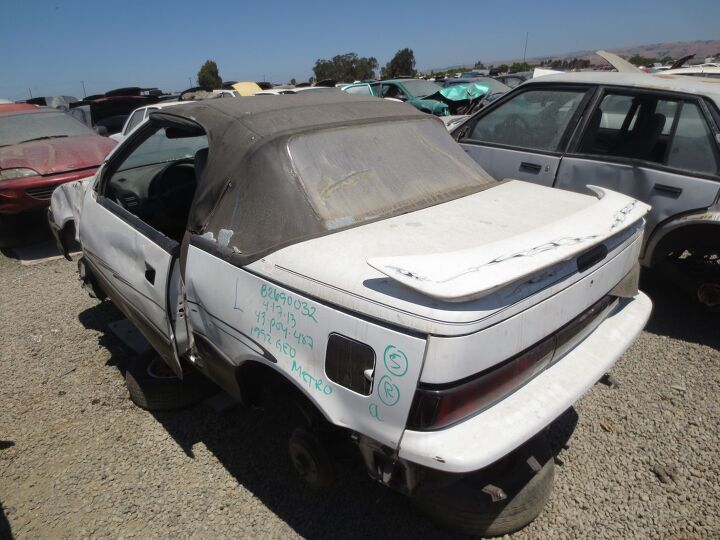
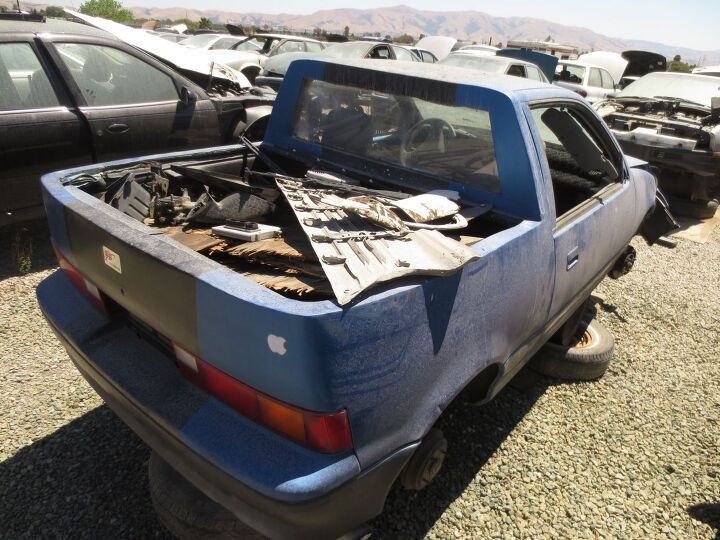
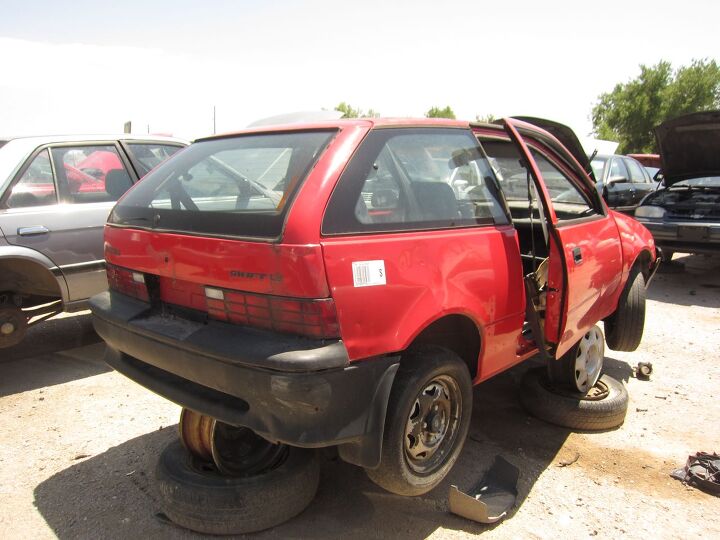

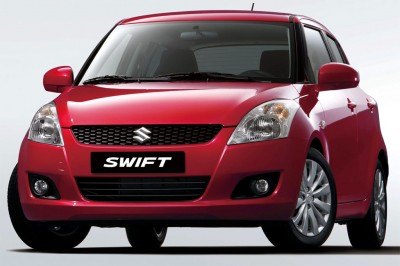













Recent Comments